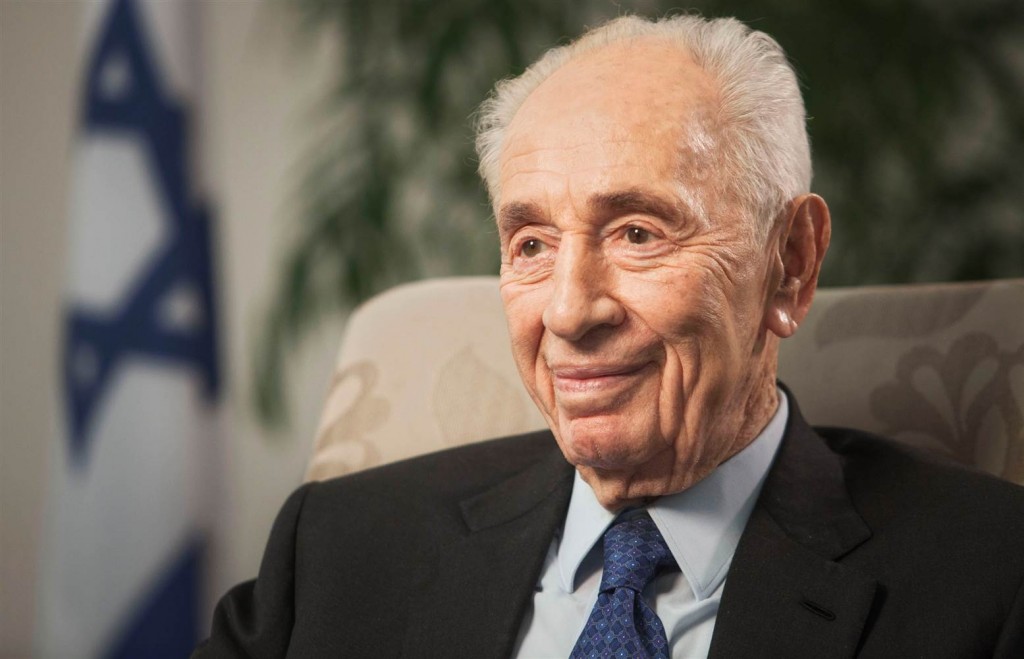This week, leaders from around the world came together to pay tribute to Shimon Peres. As the ninth President of Israel, he dedicated his life to building a stronger state for his nation while simultaneously working to achieve peace in the Middle East. As former U.S. President Bill Clinton said, Peres “thought big thoughts, dreamed big dreams,” but also developed practical ways of bringing Israel and Palestine to the negotiating table to end the long and bloody stand-off that has existed between them for over half a century.
As one of the earliest proponents of a two-state solution, he constantly promoted dialogue as the most effective way of bringing about peace and empowerment for both the Israeli and Palestinian people. He understood the power of reaching out to those with whom his country profoundly disagreed and he was the first Israeli president to speak in the Parliament of a Muslim country when he travelled to Turkey in 2007. His role in negotiating the Oslo Peace Accords in 1994 won him the Nobel Peace Prize.
There is no doubt he was a titan of the world stage and a figure who will be much missed by those who strive to ensure diplomacy, not warfare, is the chief mechanism by which we secure a lasting settlement between Israel and Palestine.
Peres’ death is not only a moment for us to recognise and pay tribute to his work but to reflect on the huge challenges that continue to affect the Middle East. The last set of Israeli-Palestinian peace talks collapsed in 2014 and there are few hopes for resumption in the near future. The long-negotiated ceasefire in the Syrian conflict has broken down and the world is faced with the daily images of brutality meted out on cities like Aleppo and Idlib. And in Yemen, Iraq and Afghanistan internal strife and conflict continue to cause misery for large swathes of the population.
The rise of religious extremism and spread of violent terrorist groups has led to all countries facing serious threats. Kazakhstan, in particular, experienced terrible shootings in Aktobe in June. But attacks this year in France, Libya, Iraq and Turkey show no country is immune.
Kazakhstan is a secular state with a predominantly Muslim population. But Kazakhstan is also home to those who worship at the Russian Orthodox Church, the Roman Catholic Church, Protestant churches and in synagogues. But despite the vast majority of people co-existing peacefully regardless of differences in religious beliefs, there have been some Kazakh citizens that have followed twisted and dangerous religious teachings, turning their back on religious plurality and leaving Kazakhstan to join violent extremist groups.
This goes against the core principles of peace and diversity Kazakhstan was founded on since our Independence 25 years ago. As a country, Kazakhstan must stand against this and hold on to the qualities that have served it so well.
It is for this reason, that the Ministry for Religious and Civil Society Affairs was established earlier this month with the central mission of ensuring the rights of all Kazakhstan’s citizens to freedom of religion are maintained. It will act as a lynchpin for discussions with all religious associations to ensure their voices and concerns are heard right at the heart of government. It will stand as a bulwark against forces that seek to divide or create conflict in Kazakh society. The ministry will also act as the key point of interaction between the government and the many civil society organisations in Kazakhstan.
This ministry is led by Nurlan Yermekbayev, who will bring his experience as a former presidential aide, secretary of the Security Council, ambassador and deputy foreign minister to this important role.
Kazakhstan will continue to be a country that promotes peace and harmony amongst different religious and ethnic groups – both domestically and across the world. Under President Nursultan Nazarbayev, Kazakhstan has led – and succeeded – in global attempts to bring countries in conflict together to negotiate a better future for their people. Just recently, President Nazarbayev played a central role in restoring relations between Turkey and Russia and Kazakhstan’s long-term strategy on Iran highlights our ability to identify areas around which countries that disagree on issues can coalesce. Finding new ways to further Kazakhstan’s aim of global peace and security will be a priority for Kazakhstan as it takes its seat on the UN Security Council.
Shimon Peres taught us to “dream big” and believe peace is possible even when it seems difficult to achieve. Kazakhstan will build on his important legacy and continue working to end conflict wherever it arises.

